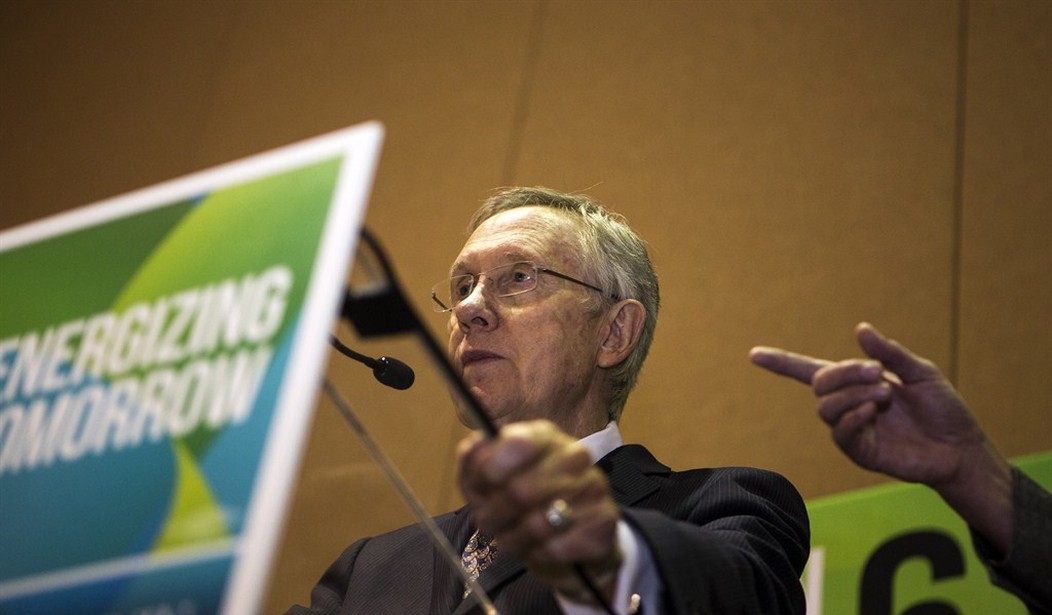WASHINGTON - Hardly a week goes by that we don't read about the Republican Party's "political problems" in the news media who insist the GOP has become widely unpopular with voters.
The Democrats, on the other hand, are portrayed as a unified party, with rarely a disagreement among them, and as the dominant political force in the country by virtue of their victory in the 2012 presidential election, slight gains in the House and Senate and, well, the people who need to be in charge of the nation's government.
But a closer examination of the political lay of the land reveals a far different story of the GOP's growing strength in recent state elections, its much broader structural base in our political system, and the growing expectation they'll make House and Senate gains in the midterm elections in 2014.
It hardly merits a peep in the Washington national news media, but the Republicans control a large majority of the nation's governorships, including many Democratic-leaning states.
The GOP holds 30 of the 50 governorships, winning 23 out of the 37 gubernatorial elections in 2010, the year the Republicans crushed the Democrats in a wave election that was seen as a nationwide repudiation of President Obama and his party's big government, big spending policies.
Twenty of these GOP governors are up for re-election next year. Many are in heavily Democratic states that are politically pivotal presidential battlegrounds in the upper Midwest that could shape the political climate for the 2016 race for the White House.
But these GOP executives have proven to be far more successful than the Democrats anticipated, turning around their economies, cutting budgets, eliminating deficits, and getting higher job approval polls, to boot.
Recommended
Ohio's John Kasich, Wisconsin's Scott Walker, Iowa's Terry Branstad, and Michigan's Rick Snyder are among the GOP's new crop of state GOP superstars, some of whom are being seen as possible presidential contenders.
And their success on bread-and-butter economic issues has produced a sharp contrast with the Democrats' abject failure in Washington to get the national economy back on track.
That contrast turned sharper this week when the Gallup Poll reported Thursday that Obama's economic approval score has plummeted to the mid-30 percent range in a new sign that more voters are growing increasingly angry over his failed economic policies.
"Despite President Obama's renewed focus on the nation's economy this summer, he scored worse with Americans on the economy than he did in June," Gallup said.
"His approval on the issue, now 35 percent, is down seven percentage points, and his ratings on taxes and the federal budget deficit are each down five points," the polling service reported.
Here in Washington, the 2014 election focus is on whether the Democrats can keep control of the Senate in such a gloomy economic climate. Right now, the race is a tossup, maybe with an edge to Republicans if Obama's job polls continue to fall and the economy shows little or no signs of improvement.
Right now, Democrats control the Senate with a 54 to 46 seat majority, but Republicans will likely lose this year's special election race in New Jersey, making the division 55-45. Thus, Republicans will need a six-seat gain to take the Senate.
Democrats start out on the defensive, because they will have 20 seats up for election next year, versus 15 for the Republicans. Some of the Democrats' vulnerable seats are in states that were easily carried by Mitt Romney in 2012, but it's hard to find any GOP seat that's in danger next year.
"Republicans don't have any seats that currently look like goners. In contrast, Democrats have three -- the open seats in Montana, South Dakota, and West Virginia," writes longtime election handicapper Charlie Cook.
Veteran election tracker Stuart Rothenberg flatly says the "Republicans are likely to gain between three to six seats in 2014."
But Cook has a word of caution, noting two potentially offsetting factors that "could make the Democrats' task more difficult."
"First, the six most-competitive [Senate] contests are in states of varying shades of red" that Romney carried by mostly hefty margins. Alaska, by 14 points; Arkansas, 24 points; and Louisiana, 17 points -- "making them tough states for Democrats these days."
Romney also won in other key Senate race states -- in Georgia, for example, by 8 points, in Kentucky by a huge 23 points, but in North Carolina, by only 2 points.
Thus, Cook points out, while the GOP is being pounded for some "image problems nationally, it is far better off in these six states."
Throw in another major factor in next year's Senate sweepstakes: the special interest voter groups that turned out for Obama in 2008 and 2012. Minorities, unmarried women, and younger voters "are far less likely to turn out in a midterm election," Cook says.
Here's the bottom line, he says. "While Republicans have a narrow path to the majority, the seats they must win are in friendly states, and turnout will work in their favor because this is a midterm election."
There's another big warning here, though. Republicans, especially tea party voters, must pick their nominees with care. In 2010, the GOP lost a slam dunk Delaware Senate race when it chose a mediocre candidate who said she had once dabbled in witchcraft, and then ran a campaign ad in which she insisted "I'm not a witch."
Last year, two GOP Senate candidates were on a path to expected victories in Indiana and Missouri, until they made unfortunate remarks about rape pregnancies.
With the U.S. economy poised to turn the Senate over to the GOP, this is no time for bush league politics.

























Join the conversation as a VIP Member